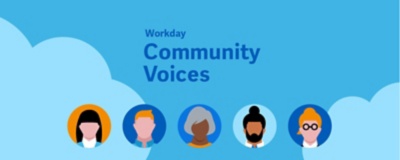How have you embraced emerging technology?
Raber: We’re focused on technology in a big way. We’re usingartificial intelligenceand RPA to influence how we run our business by helping us scale, solve problems, and minimize manual effort. With faster access to meaningful insights from our employees through regular pulse surveys, we’re able to pivot in ways that ultimately create a meaningful journey for patients.We are also actively exploring blockchain technology for its potential to change how we handle credentialing. Our first use case using blockchain technology went live last month onWayTo by Workday。
Kain: To improve our business planning process, we launched Workday Adaptive Planning in December 2019 and continued through our budget process in January 2020. We educated over 400 planners with a goal to provide our fiscal year 2021 budget by April 15, 2020. Then the pandemic of COVID-19 hit and our executive leaders had to redirect their attention to the logistical, operational, clinical, and ultimately financial crisis. Because we embraced this new technology, we were able toquickly pivot and adaptto the changing environment.
What role do partners play in supporting your transformation efforts?
Raber: We value partners inside our organization, across healthcare, and outside of the industry. We engage with our internal partners and stakeholders to identify and address problems that stand in our way of providing the best care to our patients and our community. In our partnerships with vendors, we work with those who share our values and are willing to take risks to support our strategy. We look to vendors who know multiple industries and who listen to our problems first to learn what functionality we need rather than giving us a pre-planned roadmap. Our partnerships with vendors are also built on mutual success, as we take pride in helping vendors fill gaps we’re seeing in the industry.
What advice would you give to others in the healthcare industry looking to innovate?
Raber: Within your organization, encourage a culture of bold and courageous innovation. Create a safe environment to challenge the status quo, because you don’t get very far in innovation efforts without questioning. Be open to engaging new ways to solve the problems that impact your ability to serve your patients. Some of the most exciting innovation is coming from redefining traditional partnerships or by reaching across industry lines to draw forward emerging technologies and practices with new non-traditional relationships.
Kain: In healthcare we constantly talk about the rapid changes happening and how to prepare, but “change” is vague and hard to conceptualize. When looking to the future in the healthcare industry, I recommend replacing the word “change” with “next.” And, as an organization, be ready for what’s next.
想要了解更多关于ChristianaCare的故事,它的transition to the cloud, and its partnership with Workday, check out the webinar with Kristen Raber and Workday:Workday Helps ChristianaCare Transition to the Cloud。
DiscoverWorkday’s healthcare solutions, and learn more about our recognition asBest in KLAS for Enterprise Resource Planning。








